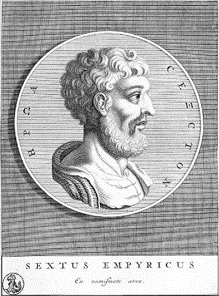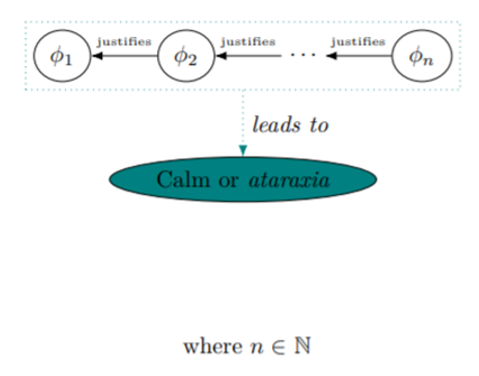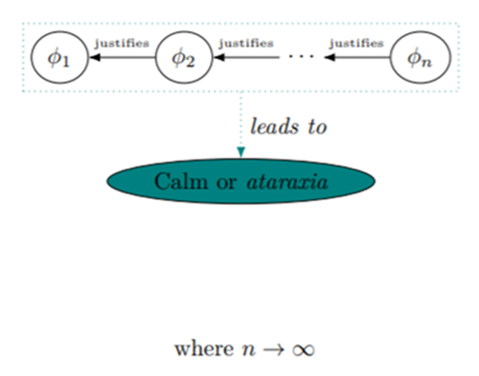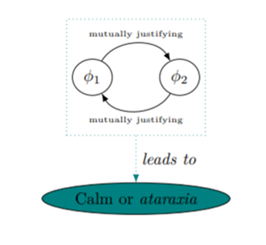昔者庄周梦为蝴蝶,栩栩然蝴蝶也。自喻适志与!不知周也。俄然觉,则蘧蘧然周也。不知周之梦为蝴蝶与?蝴蝶之梦为周与?周与蝴蝶则必有分矣。此之谓物化。 - The 'Equivalence of Things' (齐物论) chapter of the Zhuangzi (庄子) (c. 3rd c. B.C.E.)
Once upon a time I, Zhuang Zhou (庄周), dreamt I was a butterfly.
Flapping my wings in true butterfly fashion, I was happy as could be, and I knew nothing of any person named Zhuang Zhou.
But suddenly I awakened, astonished to be Zhuang Zhou.
I still don't know whether as Zhuang Zhou I was dreaming I was a butterfly or whether as a butterfly I was dreaming I was Zhuang Zhou.
There ought to be a difference between Zhuang Zhou and a butterfly, but this is called the transformation of things.
- David K. Jordan translation (adapted)
Agrippa's Trilemma 
|
||||||||||||||||||
|---|---|---|---|---|---|---|---|---|---|---|---|---|---|---|---|---|---|---|

(c. 160-210 C.E.) |
Skepsis is the Greek word for 'investigation'
|
|||||||||||||||||




|



|
|||||||||||||||||
|
||||||||||||||||||
Background image taken from: https://cdn.asiatatler.com/asiatatler/i/th/2020/02/04101225-aurora-1185464-1920_cover_1920x1280.jpg This website has been coded using html, css, and js and is dedicated to B and H .